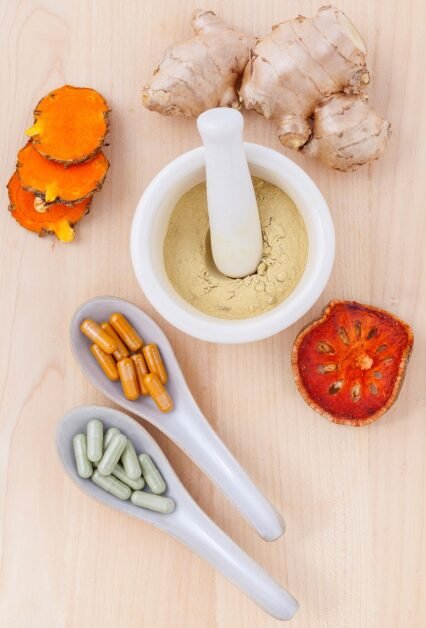Sleepless Nights? Try These 5 Natural Remedies to Drift Off to Dreamland
Sleep is a fundamental aspect of our lives that is often overlooked. It is during sleep that our bodies and minds have the opportunity to rest, repair, and rejuvenate. Getting enough quality sleep is essential for maintaining overall health and well-being. Unfortunately, in today’s fast-paced world, many people prioritize work, socializing, and other activities over sleep, leading to a chronic lack of sleep known as sleep deprivation.
The Negative Effects of Sleep Deprivation on Health
Sleep deprivation can have serious consequences on our health. Lack of sleep has been linked to a variety of health problems, including obesity, diabetes, heart disease, and depression. When we don’t get enough sleep, our bodies produce more ghrelin, a hormone that stimulates appetite, and less leptin, a hormone that suppresses appetite. This imbalance can lead to overeating and weight gain.
Additionally, sleep deprivation can disrupt the body’s ability to regulate blood sugar levels, increasing the risk of developing type 2 diabetes. Lack of sleep has also been associated with an increased risk of heart disease and high blood pressure. Chronic sleep deprivation can lead to an overactive sympathetic nervous system, which can raise blood pressure and increase the risk of cardiovascular problems.
Furthermore, inadequate sleep has a profound impact on mental health. Sleep deprivation has been linked to an increased risk of developing depression and anxiety disorders. Lack of sleep can exacerbate existing mental health conditions and make it more difficult to manage stress and regulate emotions.
The Benefits of Natural Remedies for Sleep
While prescription drugs may be effective in promoting sleep, they often come with a range of side effects and can be habit-forming. Natural remedies offer a safer alternative for those seeking better sleep without the risks associated with pharmaceuticals. Natural remedies work with the body’s own systems to promote relaxation and induce sleep.
Chamomile Tea: A Soothing Drink for a Restful Sleep
Chamomile tea has long been used as a natural remedy for promoting sleep and relaxation. It contains compounds that have a calming effect on the body, helping to reduce anxiety and promote better sleep. Chamomile tea is caffeine-free and can be enjoyed before bed to help wind down and prepare the body for sleep. The soothing properties of chamomile tea make it an excellent choice for those struggling with insomnia or restless sleep.
Lavender Essential Oil: Calming Aromatherapy for Better Sleep
Lavender essential oil is another natural remedy that can help promote better sleep. The scent of lavender has been shown to have a calming effect on the nervous system, reducing anxiety and promoting relaxation. A few drops of lavender essential oil can be added to a diffuser or applied topically to the skin before bed to create a peaceful environment conducive to sleep. Lavender essential oil can also be added to bathwater or used in a pillow spray to enhance its sleep-inducing effects.
Valerian Root: A Natural Sleep Aid for Insomnia
Valerian root is a herb that has been used for centuries as a natural remedy for insomnia. It contains compounds that act as sedatives, helping to calm the nervous system and promote better sleep. Valerian root can be taken in supplement form or brewed into a tea. It is important to note that valerian root can have a strong smell and taste, so it may not be suitable for everyone.
Magnesium Supplements: A Mineral that Promotes Relaxation
Magnesium is an essential mineral that plays a crucial role in promoting relaxation and better sleep. It helps regulate neurotransmitters in the brain that are involved in sleep and relaxation, such as GABA. Magnesium supplements can be taken orally or applied topically in the form of magnesium oil or lotion. Incorporating magnesium-rich foods into your diet, such as leafy greens, nuts, and seeds, can also help promote better sleep.
Meditation and Deep Breathing Techniques for a Peaceful Mind
Meditation and deep breathing techniques are powerful tools for calming the mind and promoting better sleep. These practices help activate the body’s relaxation response, reducing stress and anxiety. By focusing on the breath and bringing attention to the present moment, meditation can help quiet the mind and prepare it for sleep. Deep breathing techniques, such as diaphragmatic breathing or alternate nostril breathing, can also help induce a state of relaxation and promote better sleep.
Yoga: Gentle Exercise for a Better Night’s Sleep
Yoga is a gentle form of exercise that combines movement, breathwork, and mindfulness. Regular yoga practice has been shown to reduce stress, improve sleep quality, and promote relaxation. Certain yoga poses, such as forward folds and gentle twists, can help release tension in the body and calm the nervous system. Incorporating a short yoga practice into your bedtime routine can help prepare the body for sleep and promote a restful night’s rest.
Tips for Creating a Sleep-Conducive Environment
In addition to natural remedies, creating a sleep-conducive environment is essential for getting quality sleep. Here are some tips for creating a comfortable and relaxing sleep environment:
1. Keep your bedroom cool, dark, and quiet.
2. Invest in a comfortable mattress and pillows.
3. Use blackout curtains or an eye mask to block out light.
4. Use earplugs or a white noise machine to drown out noise.
5. Remove electronic devices from the bedroom or use blue light filters.
6. Establish a consistent bedtime routine to signal to your body that it’s time to sleep.
7. Limit caffeine intake, especially in the afternoon and evening.
8. Avoid heavy meals close to bedtime.
9. Engage in relaxing activities before bed, such as reading or taking a warm bath.
10. Practice good sleep hygiene by going to bed and waking up at the same time every day.
Embrace Natural Remedies for a Restful Sleep
In conclusion, sleep is a vital component of our overall health and well-being. Lack of sleep can have serious consequences on our physical and mental health. While prescription drugs may be effective in promoting sleep, natural remedies offer a safer and more sustainable alternative. Chamomile tea, lavender essential oil, valerian root, magnesium supplements, meditation, deep breathing techniques, and yoga are all natural remedies that can help promote better sleep. By incorporating these remedies into our daily routines and creating a sleep-conducive environment, we can embrace the power of natural remedies for a restful sleep.







